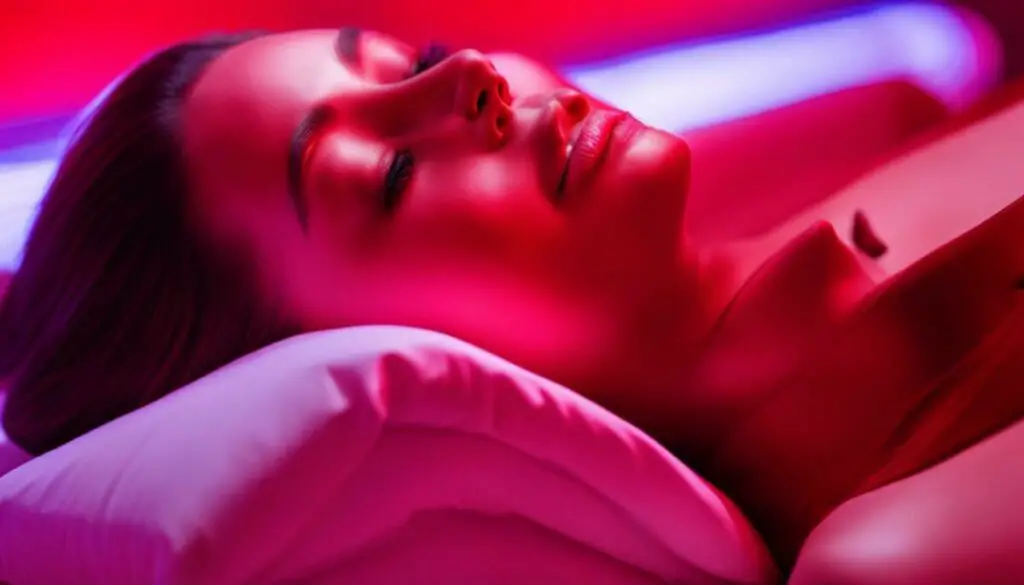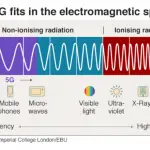Last Updated on 12 months by Francis
Light therapy is a popular treatment used to address various skin concerns, such as acne, signs of aging, and hyperpigmentation. However, with any type of beauty treatment, safety should always be a top priority. So the question is, is light therapy for skin safe? In this discussion, we will explore the benefits and potential risks associated with light therapy for skin, and provide useful information to help you make an informed decision about this popular treatment.
Contents
The Basics of Light Therapy
Light therapy is a non-invasive treatment that uses specific wavelengths of light to improve skin health, mood, and sleep. It is a popular treatment option for a variety of skin conditions, including acne, psoriasis, and eczema. The light used in light therapy is typically in the form of LED lights or lasers, and it is applied directly to the skin.
How Does Light Therapy Work?
Light therapy works by stimulating the body’s natural healing processes. The specific wavelengths of light used in light therapy penetrate deep into the skin, promoting the production of collagen and elastin. These two proteins are essential for maintaining healthy, youthful-looking skin.
Types of Light Therapy
There are several different types of light therapy, including red light therapy, blue light therapy, and green light therapy. Red light therapy is used to promote collagen production and reduce inflammation, while blue light therapy is used to kill acne-causing bacteria. Green light therapy is used to improve pigmentation and reduce redness.
The Safety of Light Therapy
Is Light Therapy Safe for Skin?
Yes, light therapy is generally considered safe for skin. However, it is important to follow the manufacturer’s instructions and to use the device as directed. Overuse of light therapy can cause skin irritation and other side effects.
Precautions to Take Before Undergoing Light Therapy
Before undergoing light therapy, it is important to talk to your doctor or dermatologist to determine if it is safe for you. Light therapy is not recommended for individuals with certain medical conditions, such as lupus or skin cancer.
Possible Side Effects of Light Therapy
While light therapy is generally considered safe, it can cause some side effects. These side effects may include redness, dryness, and irritation of the skin. In some cases, light therapy can also cause headaches or eye strain.
Final Thoughts
The Benefits of Light Therapy
Despite the possible side effects, light therapy is an effective treatment option for a variety of skin conditions. It can also improve mood and sleep, making it a popular choice for individuals who suffer from seasonal affective disorder (SAD).
How to Use Light Therapy Safely
To use light therapy safely, it is important to follow the manufacturer’s instructions. This may include using the device for a specific amount of time each day or wearing protective eyewear during treatment. It is also important to avoid overusing the device, as this can cause skin irritation and other side effects.
FAQs for Light Therapy for Skin Safety
What is light therapy for skin?
Light therapy for skin is a treatment which uses different wavelengths of light to target various skin conditions. The wavelengths generated by light-emitting diodes (LEDs) are aimed at the skin and penetrate into the deep layers of the epidermis, with different wavelengths treating different skin concerns.
Is light therapy for skin safe?
Yes, light therapy is safe for the skin when performed under the designated guidelines. Phototherapy is a non-invasive, pain-free, and drug-free therapy with few side effects. However, not everyone may be suitable for this treatment, so it is essential to consult with your dermatologist or skincare specialist before undergoing this treatment.
What are the benefits of light therapy for skin?
Light therapy for skin can offer several benefits, ranging from reducing acne scars and wrinkles to improving skin tone and texture. It is also effective for treating inflammation, atopic dermatitis, hyperpigmentation, and rosacea. As the light penetrates deeper into the skin, the skin cells get stimulated, resulting in collagen production and cell turnover that leads to healthy, glowing skin.
How long does it take to see the results of light therapy for skin?
The length of time it takes for light therapy to impact the skin depends on the severity of the skin condition and the number of sessions needed. Many patients notice an improvement in their skin’s texture within the first few sessions, whereas others may require six to eight sessions to see noticeable results. It is essential to adhere to a treatment plan recommended by a practitioner to achieve the best results.
Are there any side effects of light therapy for skin?
While light therapy is generally safe, some people may experience transient side effects, including temporary redness, dryness, and mild irritation. Many people tolerate the procedure well, and side effects subside within a few hours to several days. However, if you experience any severe side effects or discomfort, consult your dermatologist immediately.
Who is a good candidate for light therapy for skin?
Anyone who wants to enhance the appearance of their skin and address skin concerns can benefit from light therapy for skin treatment. However, it is essential to consult with your skincare professional first to determine if it’s the right option for you. Your skincare specialist will evaluate factors such as skin type, skin condition, and medical history to determine the best treatment plan.




.jpg)


